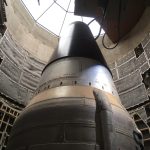President-elect Donald Trump has once again made headlines, this time by hinting at the ambitious plan to enlist the military in a widespread deportation effort targeting illegal immigrants who have poured into the country during the Biden administration. Trump’s announcement on his Truth Social platform affirmed that he intends to declare a national emergency in response to what he has described as an “invasion” of illegal immigrants.
In an undisguised affirmation of his plans, Trump echoed a report from the conservative watchdog group Judicial Watch. The notion of deploying military assets for such an unprecedented campaign has sent ripples through the political landscape, especially among those who favor robust immigration enforcement. The details, however, remain hazy: Will military personnel act as law enforcement officers armed with arrest powers, or will they simply provide support to existing border enforcement teams? The latter seems to be the favored approach based on earlier signals from Trump’s administration.
56% of Americans support mass deportations.
That’s what’s happening whether sanctuary cities want it or not.pic.twitter.com/HCy0OrGfWM
— Paul A. Szypula 🇺🇸 (@Bubblebathgirl) November 17, 2024
The potential for the military to become involved in immigration enforcement raises questions about their role. Speculation abounds whether troops will be stationed solely at the southern border to deter ongoing illegal crossings, or if they will venture into the heart of American communities to locate and deport individuals who have already set up shop in the country. The implications are significant, leaving many to wonder what a concerted military action could mean for the landscape of American immigration policy.
Among those bracing for impact are immigrant rights advocates, who view Trump’s military involvement as a dire threat. Their fears are fueled further by Tom Homan, the designated “border czar” under Trump, who has expressed intentions to deliver what he calls “shock and awe” against the surge of illegal immigration that has ballooned over the last four years. Homan’s aggressive rhetoric suggests that the Trump administration’s approach will not just be about enforcement but might encompass a level of military fervor not seen in recent immigration debates.
Historically speaking, the employment of military resources at the border is not a novel concept. Since the era of George H.W. Bush, every president has found ways to engage the military in border enforcement activities. Yet, where past efforts have typically involved limited roles—like surveillance and administrative assistance—Trump’s vision looks poised to approach more proactive measures. Should this military deployment unfold, it could reshape conversations around immigration more drastically than ever before.




